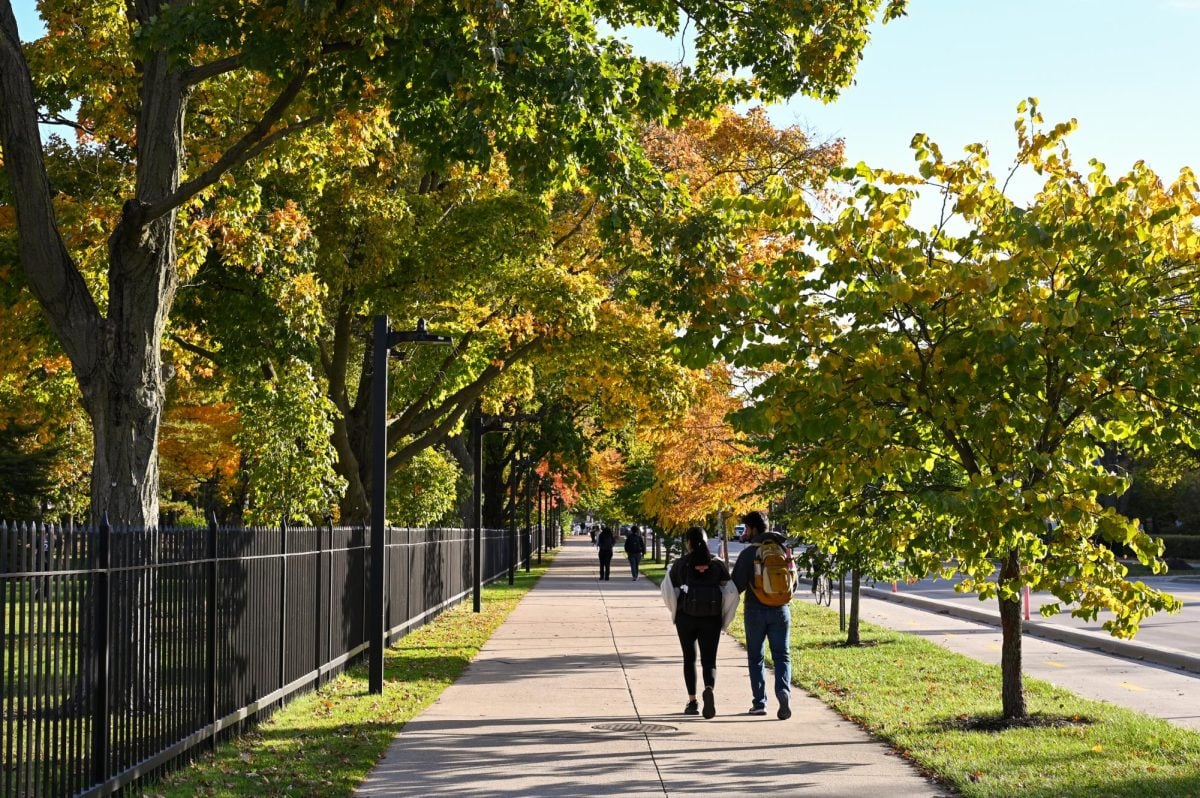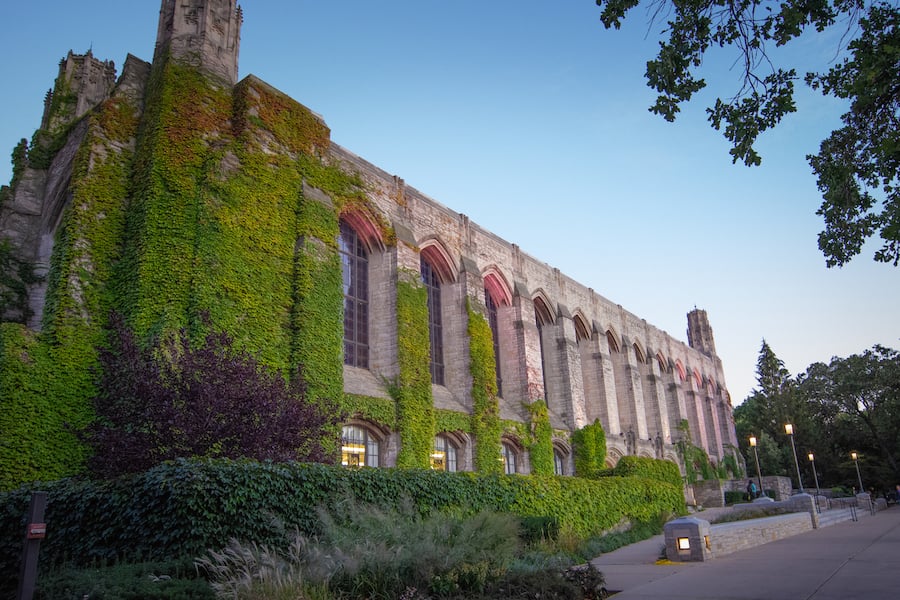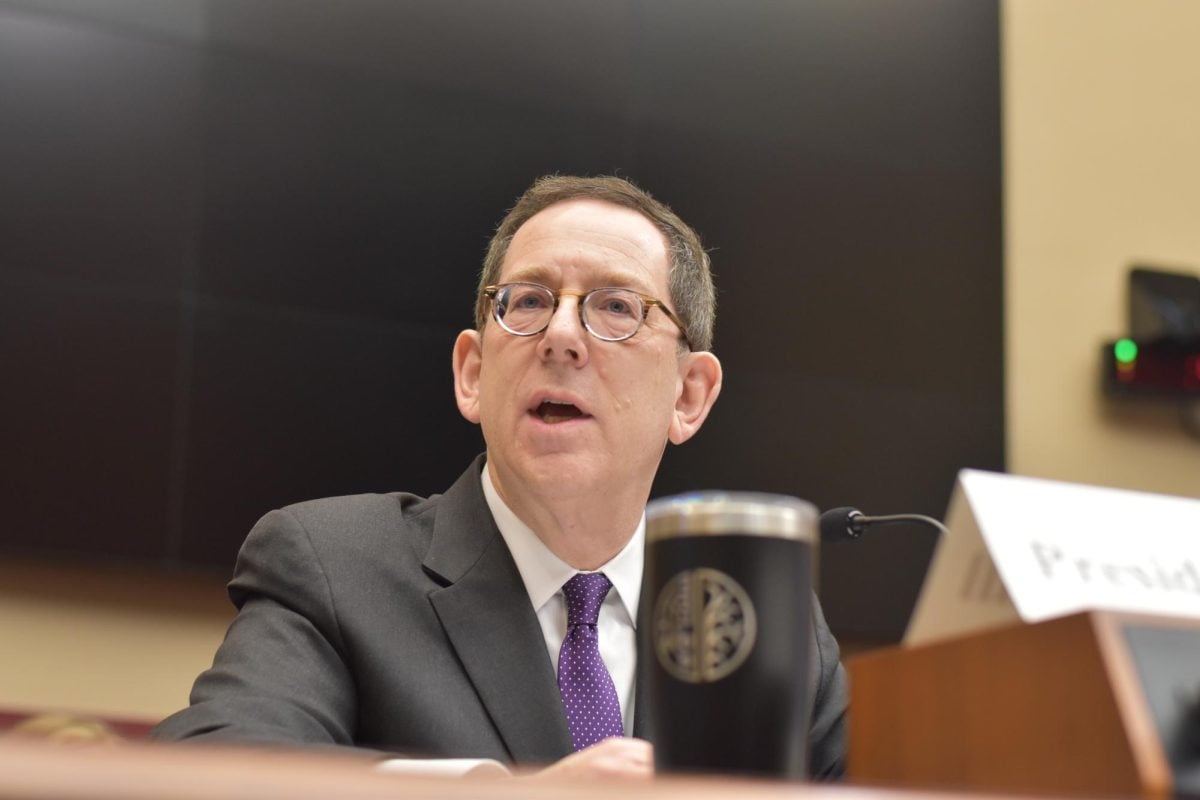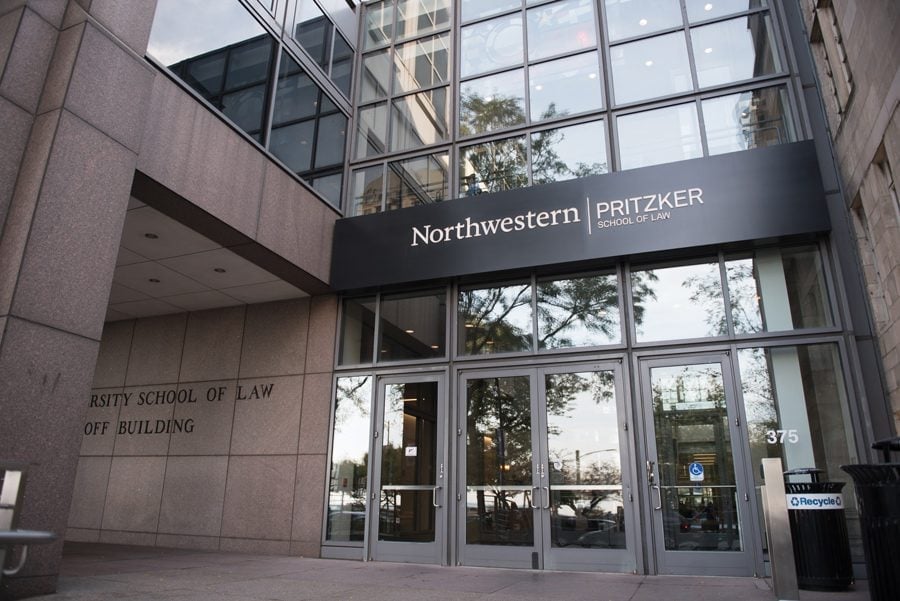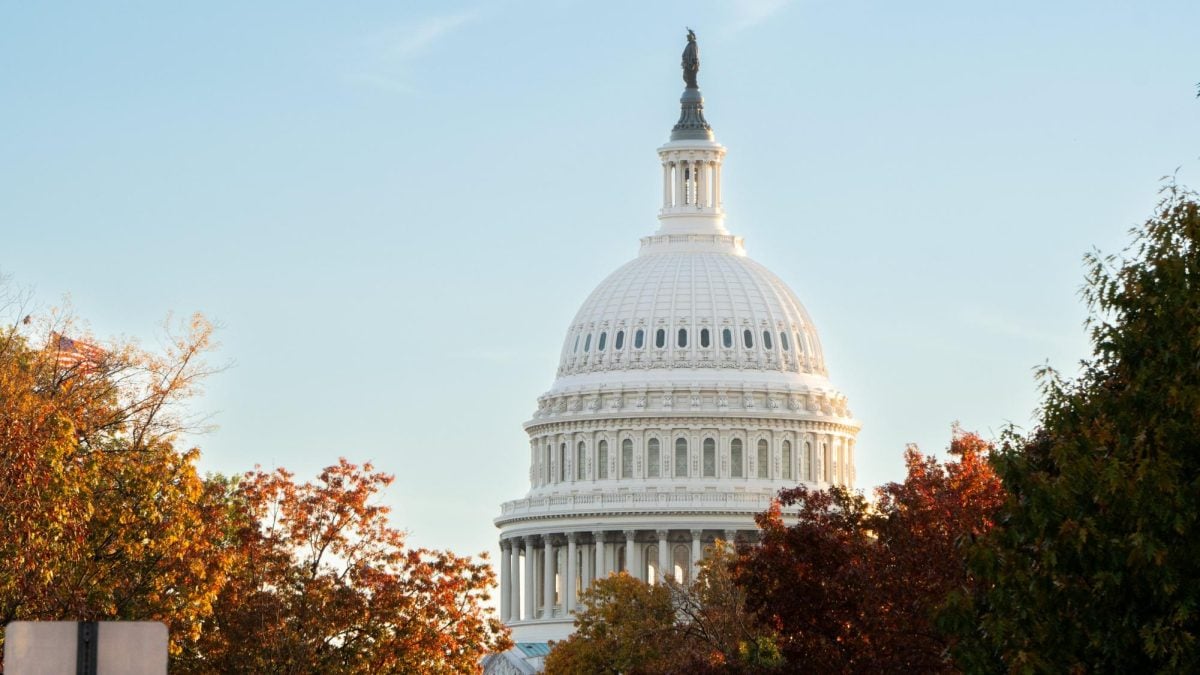Northwestern President Morton Schapiro predicted Monday night NU tuition would top $100,000 per year by 2025 and the University’s acceptance rate would continue to decrease as part of the NU Political Union’s discussion of a higher education financial bubble.
Schapiro, an economics professor, appeared at the Buffett Center and argued the education bubble is largely a myth, especially for competitive schools like NU that are part of the Consortium on Financing Higher Education.
As an economist, Schapiro focuses on the financing of higher education and has testified before both houses of Congress on the topic.
“People are fixated on (the) sticker price (of a college education), but the truth is, if you look at COHFE schools, you have to be in the top 5 percent of American income distribution to pay the sticker price,” Schapiro said. “If you’re in the other 95 percent, then on average you’re paying 25 percent of that. So I don’t see any indication that there’s a bubble. And if there is a bubble, it’s at the publics, not the privates.”
The discussion largely focused on disputing popular claims that rising student debt will soon cause a crisis in education, but included Schapiro’s prediction that NU tuition would continue to soar.
“We’re going to get up to $100,000 tuition before too long, probably 14 years,” he said. “So then the question is: Is it a good investment? And it is a good investment. The only reason it wouldn’t be would be if they outsourced those white collar jobs to Bangalore.”
Schapiro maintained, however, that rising “sticker prices” would not deter students from applying to NU in the coming years, noting the University’s acceptance rate has dropped in recent years.
“A few years ago we admitted one out of three,” Schapiro said. “Last year we admitted one of six. This year we’re going to admit one of seven, I think. So price isn’t a barrier.”
Following Schapiro’s opening comments, members of the audience, which packed the room to the exits, asked questions and noted some indicators of an impending bubble.
Steven Monacelli, the party leader of the left in the Political Union and a former daily staffer, asked about the rising number of college graduates who are unemployed or underemployed in the year following their graduation.
“When you look specifically at recent graduate employment, it’s pretty troubling,” the Weinberg junior said. “About 50 percent (of recent graduates) were split evenly between unemployed and working in a job that didn’t require a college degree.”
Schapiro responded by noting such statistics do not usually apply to NU, where he said more students are “occupying a job than occupying Wall Street.”
“It’s very different at the elite (schools),” Schapiro said. “Those kids find jobs. And yes, The New York Times finds the guy who says, ‘Yeah, I was an art history major and now I’m occupying Wall Street.’ The truth is that kid’s probably an intern at Goldmann (Sachs) and is embarrassed to admit it … or heading off on a Fulbright like our kids do.”
Weinberg senior Bill Russell, a student in Schapiro’s Humanities Explorations class, also pushed Schapiro on what could create an education bubble.
“People talk a lot about how higher education serves two purposes,” Russell said. “One, it’s a sorting mechanism, so it determines who’s more qualified than someone else. Two, it’s a value-added, so you gain some sort of skills or knowledge. I think in order to have a bubble, people would have to figure out that it’s more the sorting mechanism than the value-added.”
Schapiro countered he found that unlikely and said he believes an education at a prestigious institution can encompass both aspects.
Although he predicts NU’s tuition will continue to rise, Schapiro also said he thinks Harvard and other top universities will charge no tuition by 2025.
“If it hadn’t been for the massive correction in 2008, Harvard was on their way to be being free,” Schapiro said. “The worry is that the rest of us will be suckered into that. We still get 20 percent of our net revenue from undergrad tuition, and I don’t want to lose that.”
